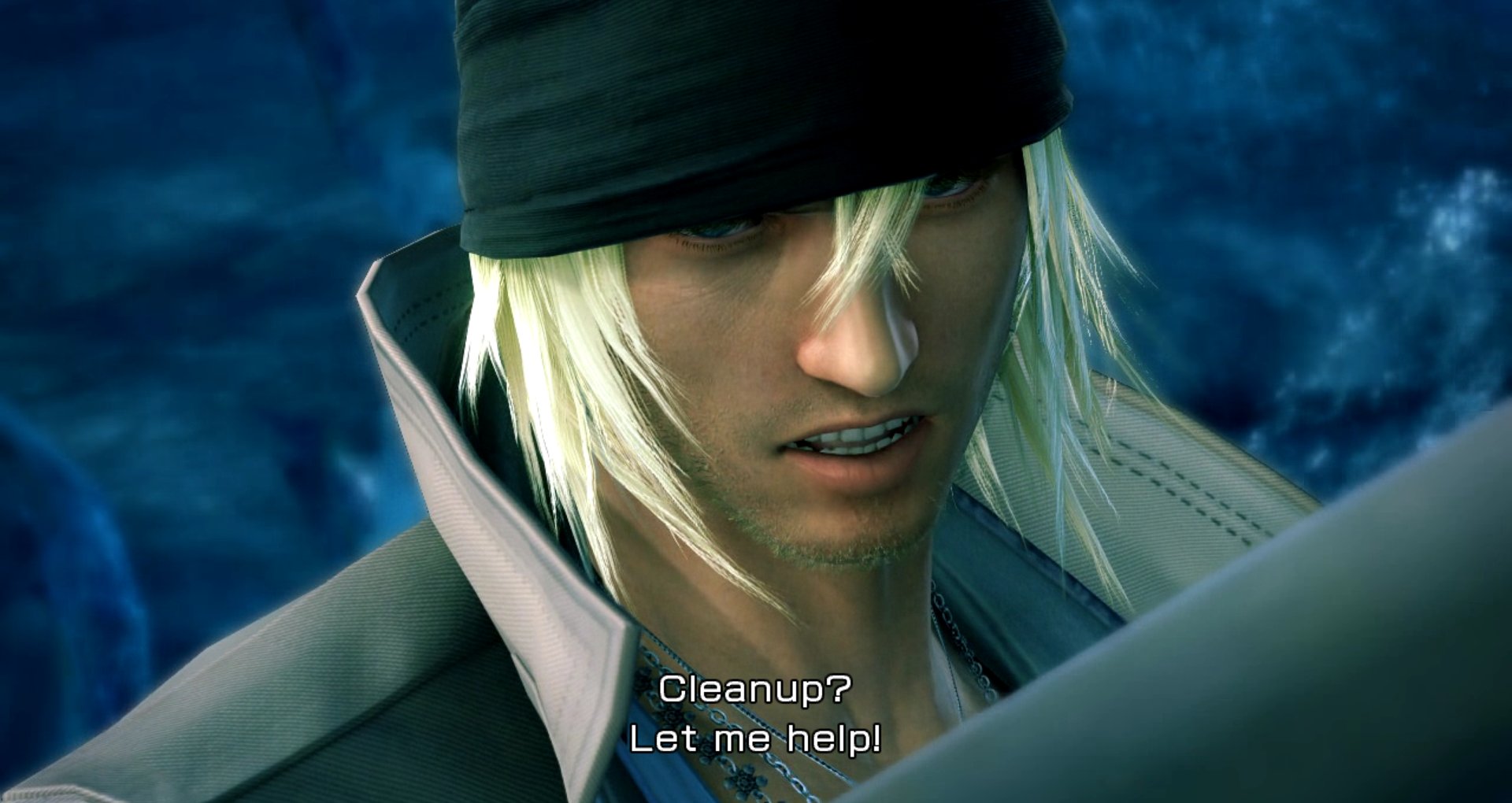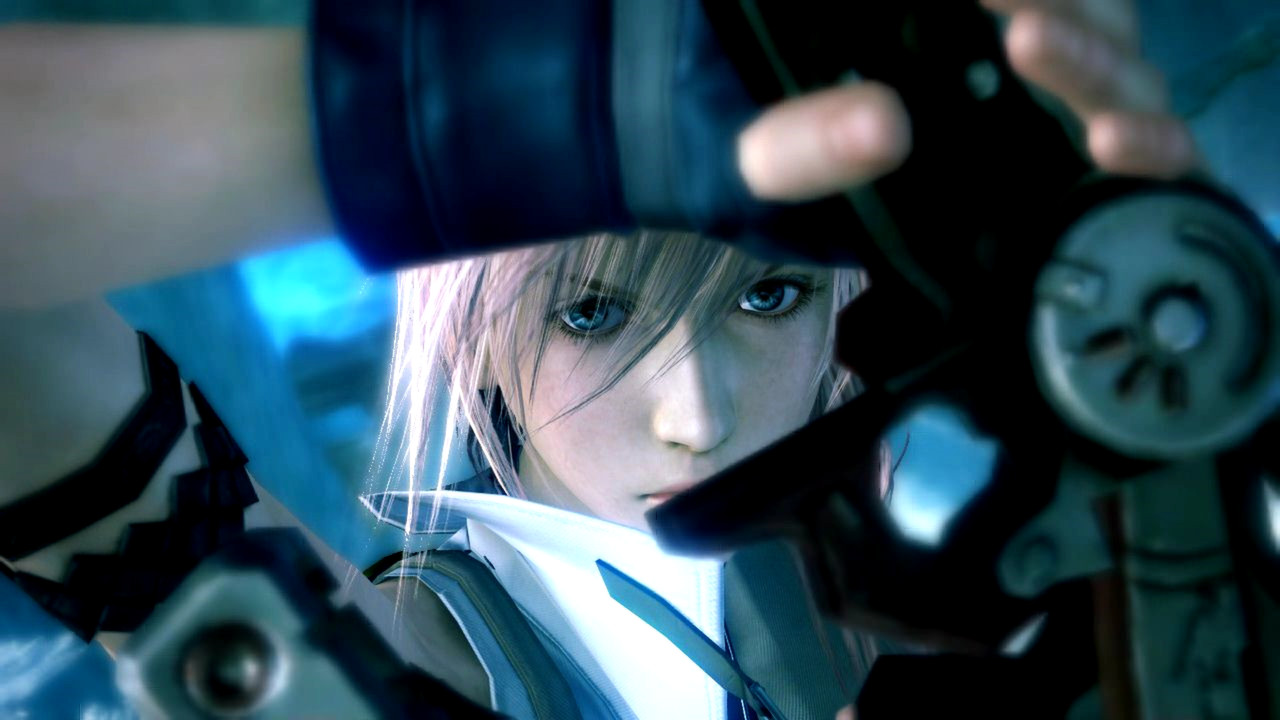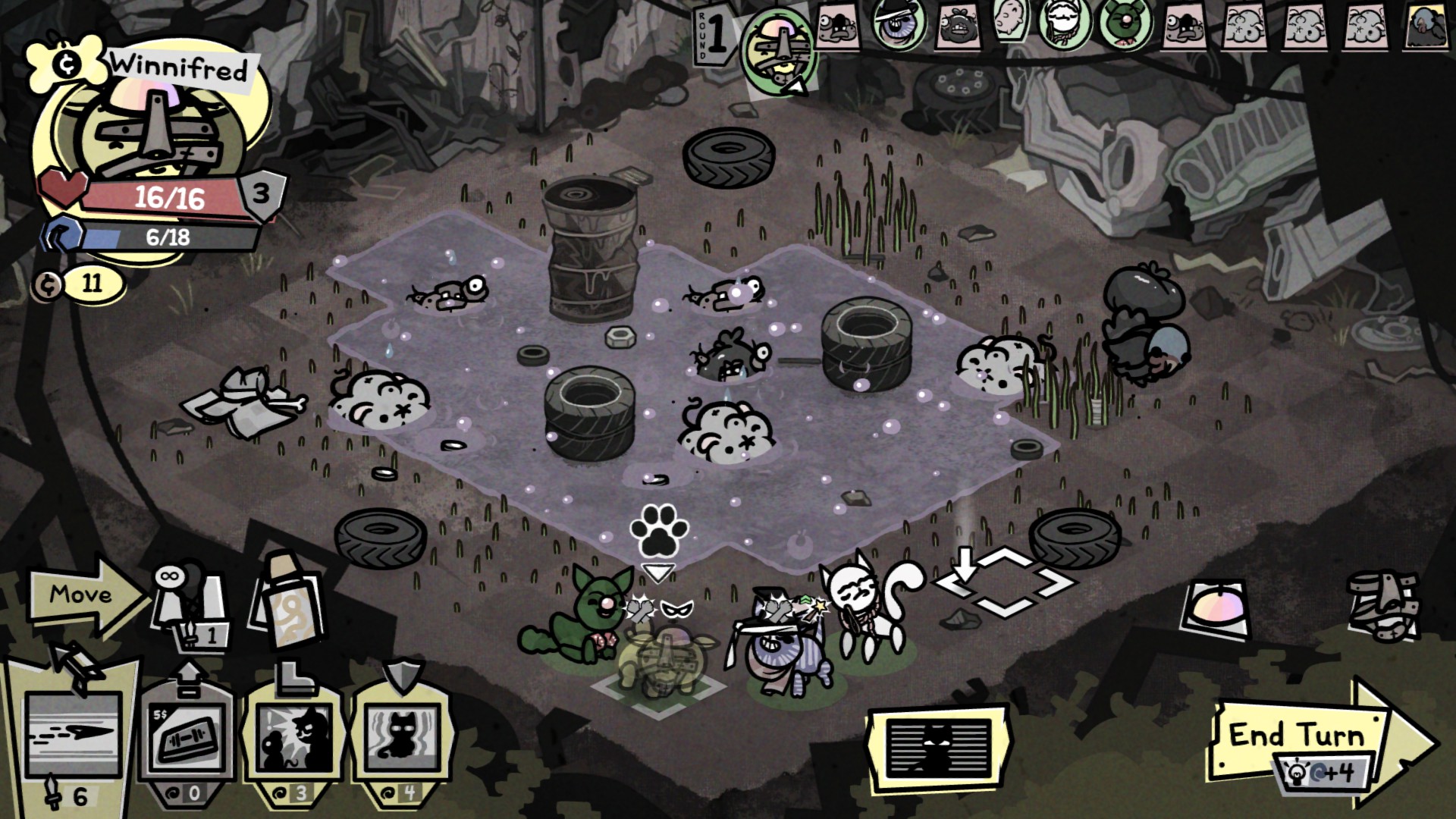Our Verdict
Parts of Final Fantasy XIII are worth the absurd amount of time it takes to properly open up, but this port is a big letdown.
PC Gamer's got your back
What is it? 2010 console RPG finally arrives on PC with no panache.
Reviewed on: AMD FX-6200 CPU, 16GB RAM, AMD Radeon HD 7870
Price: $16/£11
Release: Out now
Publisher: Square Enix
Developer: In-house
Website: Official site
Multiplayer: None
Final Fantasy XIII is, by some accounts, the most hated of the long-running Square Enix RPG series. On some level, I understand why. It takes the usually open-structured world of a Final Fantasy game and swaps that with journeys in mostly shiny corridor worlds, removing the sense of exploration that’s been intrinsic to the series since the start.
Upon its original release on PS3, the reaction to this direction was so extreme that Square Enix attempted to repair the damage with two wildly different, open-ended sequels. FFXIII has serious merit in its inventive combat system, but it’s an absolute slog to find that potential—this belated port is so shoddy, too, that it’s tough to recommend picking it up on PC if you haven’t played it elsewhere already.
Taking place in a mostly linear world that straddles both sci-fi and fantasy, FFXIII is primarily about turn-based, real-time battles and delivering a giant, baffling narrative. Enemies wander around in the field, and if they detect your character, they charge and the screen cuts away to a battle. If I sneak up on an enemy, my character gets first strike at the start of the encounter.
In-battle, only one character can be controlled at a time—the others in my party will fight automatically based on the roles I assign them. Let’s say my default party contains two ravagers (mages) and a commando (warrior). My party will attack based on each class’s set of moves. If I’m damaged by my enemy and need to redo my strategy mid-battle, I can instantly use the Paradigm Shift system to load a different set of preset classes for my characters.
Instead of two mages and a commando, I tell my team to become two medics (white mages) and a sentinel (a high-defensive unit who absorbs damage), and the characters then automatically start throwing spells and abilities out based on the new roles I’ve assigned them. At first it seems like the combat’s been oversimplified when you select Auto Battle and all the moves are chosen for you, but it’s more an attempt to move to higher-level strategy that becomes very successful as the classes and abilities begin to open up. Trouble is, that takes fucking ages.

One of the better parts of this is being able to create new paradigms in the menu outside of battle, to mix and match classes to my preference—so if I want three characters to focus on ravager abilities, I can set that up and load it next time I’m in a fight. Setting up pre-loaded sets of strategies and using them to control the flow of battles is a brilliant bit of in-depth and systems-driven design ingenuity, the sort of idea Final Fantasy has always been very good at. The eventual goal is to stagger the enemy by mixing up attacks until the bar on the right hand corner of the HUD reaches full—after which, you get a brief window to perform more damage. Every battle gives you a rating out of five based on speed and efficiency, so there’s a sense of racing against yourself to throw the right tactics together.
This is underlined by a somewhat freeform progression system called the Crystarium. It’s a little like a board game in the way you unlock new skills and stat boosts based on how you spend experience points. Enjoy it, though, because it’s the only real freedom that Final Fantasy XIII offers, and even in the case of Paradigm Shifts and the Crystarium, they put a ceiling on progression throughout the story so it’s hard to ever overpower the party members. This controlled levelling is highlighted by the frequent difficulty spikes in boss battles.
Keep up to date with the most important stories and the best deals, as picked by the PC Gamer team.








The first 20 hours of Final Fantasy XIII are like a long tutorial, just walking in a straight line between battles and cutscenes. The story, set in the two warring states of sci-fi city Coccoon and the wildlands of Gran Pulse, follows a mostly irritating group of characters who are cursed by gods known as the Fal’cie into fulfilling their destiny—which I think, feeling my way through the impenetrable terminology, is saving the world. The core group of characters is led by the much-despised Lightning, who I actually like, since she’s a functionally identical protagonist to FFVII’s Cloud and FFVIII’s Squall in being a grumpy, spiky-haired warrior with a cool yet utterly impractical sword. Your six character party and the extended cast is mostly made up of people I wouldn’t cross the road to save, and with so many cutscenes in the game you’ll have plentiful opportunities to build up a seething resentment towards them and their lovely hair.
With only this noisy but sometimes enjoyably melodramatic narrative and a stream of samey battles to occupy players until it finally opens up after around 20 hours, Final Fantasy XIII is undeniably a nightmare for most people to get into. Eventually, you reach Gran Pulse, a lovely open environment with impressive giant-sized enemies and even some sidequests—just more battles, really, in the form of bounties—to complete. I love Final Fantasy, generally speaking, but XIII is so difficult to defend. This has one of the series’ best combat systems, a quick-paced affair that relies on reconfiguring your characters’ strategy on the fly in meaningful, customisable ways, but I could not reasonably ask you to wait 20 hours until that becomes totally clear. Your time on this earth is simply too short.
Final Fantasy XIII is undeniably a nightmare for most people to get into.
Final Fantasy XIII has forgotten it’s on PC, too. When I hit the settings menu to change resolutions from the automated 720p to 1080p, there is no way to do so. When I want to fiddle with the settings to sort out the crosshatching hair effects, there’s no option of that nature. Final Fantasy XIII has no graphics options, locking itself at 720p. In the field—and by field, I mean a shiny corridor with three guys in it—FFXIII can even drop to below 20fps on my mid-range Radeon card. It’s not an unplayable port or anything, it’s just so far off the ideal and closer to the flawed 360 version in performance. Very occasionally it’ll hit 60fps in environments and cutscenes but the port seems to be locked at 30 during combat, minus the Paradigm Shift animations. The exotic character designs and frequently inventive art direction represent a peak for the series—they’re just not at their best on PC.
I’d be looking at a score in the high sixties if these basic options made it into the game, but Final Fantasy XIII is far from essential in this form. I’d be remiss not to mention Durante’s fix, which solves most of the issues in this port and makes the character models in particular look extraordinary, but that’s not the version Square Enix is selling to you. It’s not Durante’s responsibility to fix crap ports from major publishers. Final Fantasy XIII’s collective trilogy (all of which is coming to PC—the sequel is a lot better) has sold over 10 million copies, and yet Square Enix didn’t manage to add a raft of visual options that one person managed overnight upon the game’s release. I think Square Enix should take a bit more pride in Final Fantasy’s laudable heritage.
This is a weak version of an already contentious RPG, then. Players that find themselves won over by the combat system of Final Fantasy XIII and are patient enough to deal with the structural problems will eventually be rewarded for sticking around, but it never lives up to the still superior journeys of VII and VIII.
Parts of Final Fantasy XIII are worth the absurd amount of time it takes to properly open up, but this port is a big letdown.



